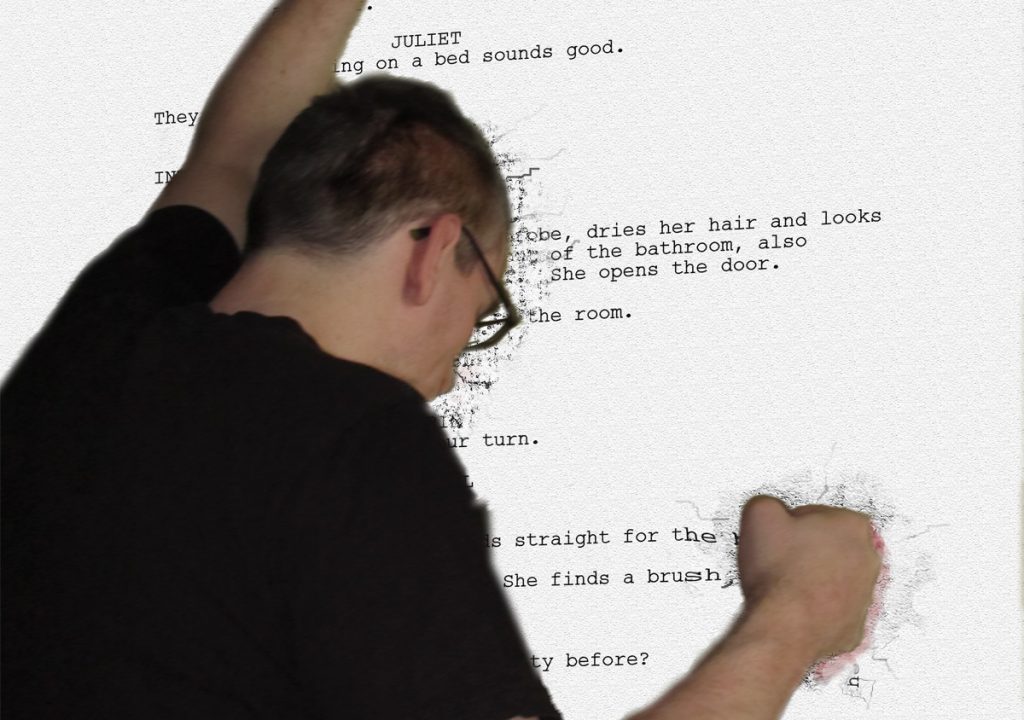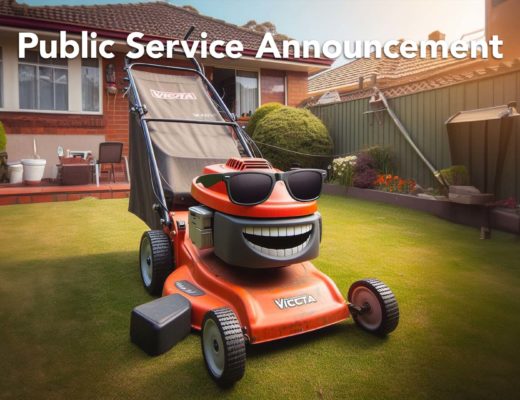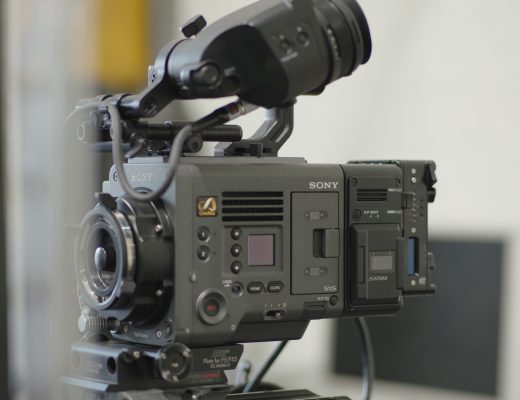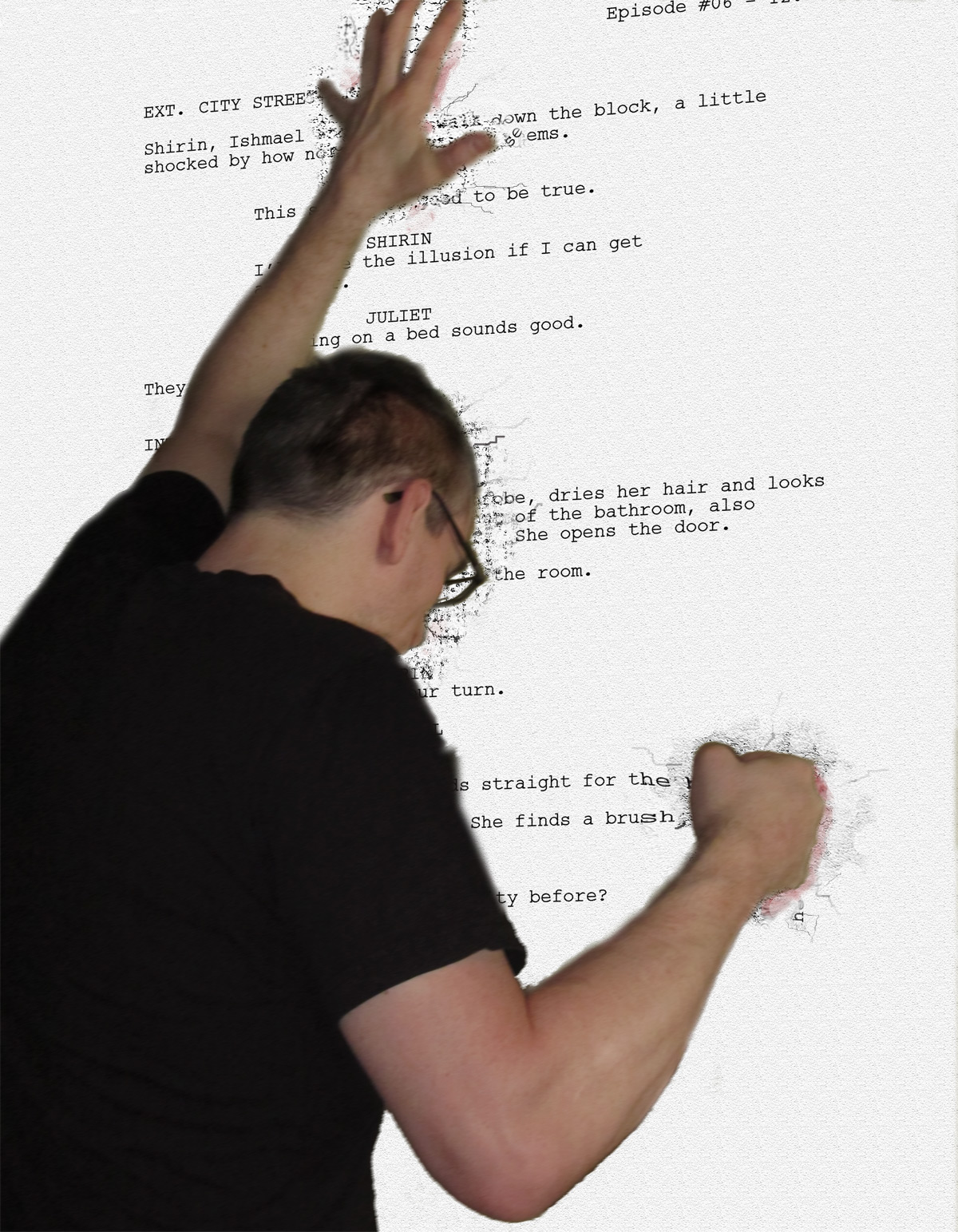 Folks, I’m here to tell you: it’s time to put that script down, unless you can afford to make it with your own money without declaring bankruptcy.
Folks, I’m here to tell you: it’s time to put that script down, unless you can afford to make it with your own money without declaring bankruptcy.
I’ve been there. You pour your heart and soul into a script, and it just doesn’t go anywhere. You’re trying to raise money and no one wants to chip in for it. You’re trying to sell it and no one seems serious. You get nibbles from distributors, from people ‘with access to money’ who waste your time, with C-level actors who think they’re still A-level… and meanwhile, your career flounders and you alienate all your friends and connections. Mostly, you latch onto that one ‘passion project’ you heard about that took X years to get made, and you make that into your beacon of hope.
The fairytale that we hold onto most dearly is the Rocky story. Stallone held onto his script, ate ramen noodles, refused easy selling options, and finally made the movie that he wanted to, on (mostly) his terms. It made him a star. I did it. I was going to be the next Tarantino with my sci-fi script, Chaos and Desire. Never heard of it? I’m not surprised, because it didn’t get made.
You can’t really hold up exceptions as though they’re golden rules. I’ve got a folder on my hard drive with all my ‘inactive’ scripts. I try not to look through it unless an opportunity comes up that looks like a good fit for one of them. I’ve also got another one where I put all the budgets I’ve done for hire. In that folder sits a special class of projects, where the writer/producer/director has come back to me three or four times, to redo the budget for yet another go-round. I don’t feel as bad about those (since in most cases I got paid every time to do the budget), but it sucks to be the person who’s still shopping the script around.
So here are seven reasons why you should stop thinking about Rocky and put that script down. Some of these may not apply to you.
#1. YOU AREN’T SYLVESTER STALLONE
Stallone was a working actor in Hollywood. He was acquiring the kind of connections that could actually, at that time, get movies made. He wasn’t a superstar, but his roles were steadily getting bigger (see King of Marvin Gardens sometime, it’s good). If Rocky hadn’t happened for him, something else would have. He was also incredibly lucky. Do you have his connections? Do you work in a film-related field during the day? Do you already have some track record as a producer or actor or in another creative capacity?
#2. NO ONE DOES IT ALONE
Kevin Smith had his Scott Mosier, Stallone had Irwin Winkler, Tarantino had Lawrence Bender… heroes always have champions, sometimes many of them, that you never hear about. If you’re pushing that boulder up the hill and not getting anywhere, perhaps it’s because you don’t have a team behind you. It may be time to stop pushing your script, and start focusing on building a group. This is its own frustrating exercise, because sometimes you have to kiss a lot of frogs, and help other people out first, but the rewards can be immense.
#3. THE GAME HAS CHANGED
By the time the Rocky/Reservoir Dogs/Blair Witch/El Mariachi/Paranormal Activity stories became legendary, the game had already changed. In today’s era there are two kinds of movies being made: $100M+ action/four-quadrant/’high concept’ tentpoles, and $200K or under tiny-budget Kickstarter-financed films. The middle zone of ‘Indiewood’ films has steadily eroded, to the point where it’s not worth considering trying to raise money for that film unless you have a track record.
This leads me to the next reason…
#4. YOU WROTE TOO BIG A SCRIPT
Most people (myself included) don’t realize how big the script is until after it’s been broken down. It seems like you’ve written a small two-character drama, until you see that there are actually 5 main characters and 20+ supporting ones, sixteen big locations, a few scenes with a ton of extras, some special effects, and stunts. That big rock concert finale? Yeah, that could cost some dollars. You aimed to write a $200K script and ended up writing a $1M-$2M epic.
By all means try and rewrite the script. Make it tighter, more compact, and get rid of the self-indulgent/unfocused moments and scenes. But you may honestly have written a great script that just can’t be made for $200K unless everyone works on it for free and you feed them nothing but peanut butter and jelly sandwiches. At a certain point you may be cutting muscle from your script instead of fat. Don’t do that.
#5. YOUR SCRIPT GOT MADE BY SOMEONE ELSE
I wrote a script with some superficial similarity to Avatar. There was a creature effects company interested in developing it. The director/producer of the company got tied up with a couple of higher-profile projects. The process dragged on. I started working with someone on a graphic novel version. Then Avatar came out. My script (which I wrote in 2004-2005) went from being a fresh, interesting take on aliens, colonialism, and racism to being “just another Avatar” clone. I drank, I bitched, I moaned…. and then I put the script in a “drawer” and wrote another one.
No one from the company whispered in Jim Cameron’s ear. There was no conspiracy. This just happens. If you’re onto something interesting, chances are someone else is taken with a similar idea. Whoever gets the money together and makes the movie first wins. Or the world changes, and your script isn’t as relevant anymore. Put the script away until it becomes current again, or try to change it if it’s not too much trouble. But don’t beat the dead horse around.
#6. YOUR SCRIPT MAY NOT BE THAT GOOD
Screenwriters have the unrealistic expectation that their first or second script will be the greatest thing since sliced cheese and that it will catapult them into a career. This is sometimes true, but is usually a complete fantasy. Becoming a good artist of any kind requires practice, and chances are your first or second or even third script is just that. My first feature, Caleb’s Door, was based on the fourth script I’d written. Found In Time was based on my eighth. I can see the improvement in my writing. That’s reason enough to keep working on new material – you get to stretch yourself, hone your craft, and diversify your work portfolio.
Or the script is quite good, but after 30 drafts you’ve lost perspective. You’re pounding the story into generic mush to make it more “commercial” while not paying attention to the things that are truly problematic. Find some people who won’t just smile and say nice nonspecific things about your script. When one person tells you about something that’s not working, that’s an opinion. When the entire group tells you about it, that’s something to pay attention to.
Especially if it’s an autobiographical story, you may simply be too close to it at the moment to really give it the rewrite it deserves. Put it down, pick it up again after you’ve done something else. Which leads me to…
#7. YOUR CAREER DEPENDS ON MORE THAN ONE PROJECT
You may have the greatest script, the best producer, all the right connections, and a unique story that hasn’t been told yet, but for whatever reason it hasn’t been made. Or it’s been optioned but nothing’s happened to it (that’s happened to me twice now). You may have written a horror movie when no one’s buying them. You have an original story but the market wants “franchise-based material.” You can’t control or predict the marketplace.
So just move on. It’s not a wasted effort. Writing is a healthy activity, and it’s saved many an otherwise lost soul. And when the market swings back in your direction, you’ll have something ready. Long-term success depends on delivering a steady stream of work, not on writing one script. So work on something new.
I’m not saying you should become a laser printer, and just churn out scripts like so much paper. Nor am I telling you abandon your script entirely – it could very well have a life. But if you’re struggling to get something made/sold and it just hasn’t happened for so many years, put it down and pick up something new. You’ll feel surprisingly good after a few days. After all, the thrill of going on new adventures is why we write, isn’t it?
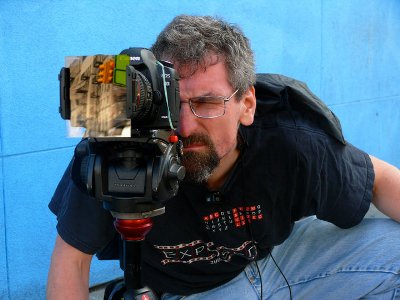 Arthur Vincie is a writer, director, and line producer. His latest feature film, “Found In Time” (sci-fi) is coming out on Amazon, VUDU and Dish Network in August. It won “Best Feature” at the Art of Brooklyn Film Festival, and “Best Sci-Fi Feature” at Shriekfest, Shockerfest, Intendence, and Phoenix Comicon, and has been to 13 others so far. Focal Press just published his non-fiction book on preproduction, “Preparing For Takeoff.” You can find out more about the film by heading to www.foundintimefilm.com, and check out the book on www.preparingfortakeoffbook.com.
Arthur Vincie is a writer, director, and line producer. His latest feature film, “Found In Time” (sci-fi) is coming out on Amazon, VUDU and Dish Network in August. It won “Best Feature” at the Art of Brooklyn Film Festival, and “Best Sci-Fi Feature” at Shriekfest, Shockerfest, Intendence, and Phoenix Comicon, and has been to 13 others so far. Focal Press just published his non-fiction book on preproduction, “Preparing For Takeoff.” You can find out more about the film by heading to www.foundintimefilm.com, and check out the book on www.preparingfortakeoffbook.com.
More from Arthur Vincie:

Filmtools
Filmmakers go-to destination for pre-production, production & post production equipment!
Shop Now